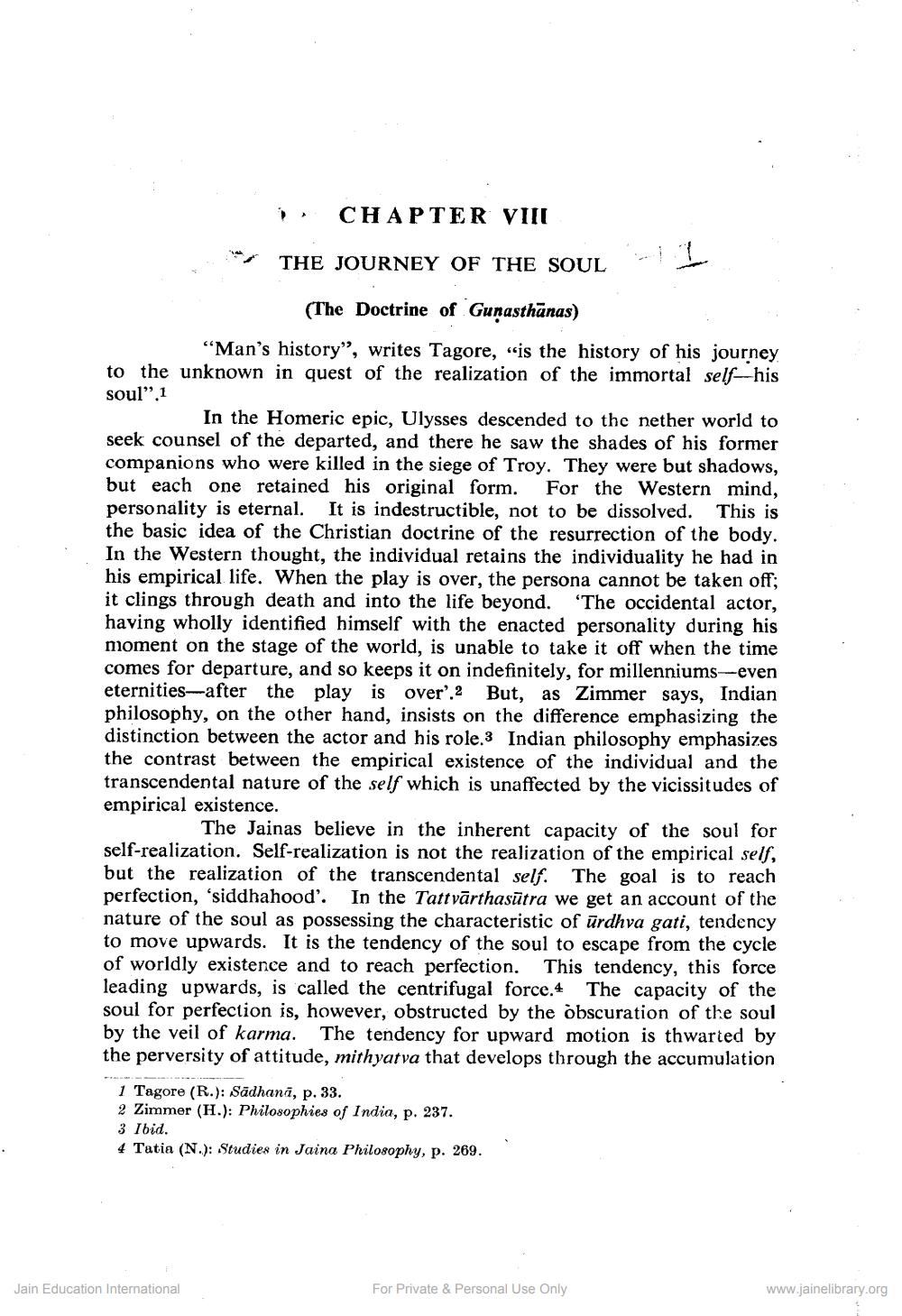________________
CHAPTER VIII
, THE JOURNEY OF THE SOUL-
1
(The Doctrine of Gunasthānas) "Man's history”, writes Tagore, is the history of his journey to the unknown in quest of the realization of the immortal self-his soul".1
In the Homeric epic, Ulysses descended to the nether world to seek counsel of the departed, and there he saw the shades of his former companions who were killed in the siege of Troy. They were but shadows, but each one retained his original form. For the Western mind, personality is eternal. It is indestructible, not to be dissolved. This is the basic idea of the Christian doctrine of the resurrection of the body. In the Western thought, the individual retains the individuality he had in his empirical life. When the play is over, the persona cannot be taken off; it clings through death and into the life beyond. “The occidental actor, having wholly identified himself with the enacted personality during his moment on the stage of the world, is unable to take it off when the time comes for departure, and so keeps it on indefinitely, for millenniums--even eternities--after the play is over'.2 But, as Zimmer says, Indian philosophy, on the other hand, insists on the difference emphasizing the distinction between the actor and his role.3 Indian philosophy emphasizes the contrast between the empirical existence of the individual and the transcendental nature of the self which is unaffected by the vicissitudes of empirical existence.
The Jainas believe in the inherent capacity of the soul for self-realization. Self-realization is not the realization of the empirical self, but the realization of the transcendental self. The goal is to reach perfection, 'siddhahood'. In the Tattvārthasūtra we get an account of the nature of the soul as possessing the characteristic of ūrdhva gati, tendency to move upwards. It is the tendency of the soul to escape from the cycle of worldly existence and to reach perfection. This tendency, this force leading upwards, is called the centrifugal force.4 The capacity of the soul for perfection is, however, obstructed by the obscuration of the soul by the veil of karma. The tendency for upward motion is thwarted by the perversity of attitude, mithyat va that develops through the accumulation
1 Tagore (R.): Sādhani, p. 33. 2 Zimmer (H.): Philosophies of India, p. 237. 3 Ibid. 4 Tatia (N.): Studies in Jaina Philosophy, p. 269.
Jain Education International
For Private & Personal Use Only
www.jainelibrary.org




